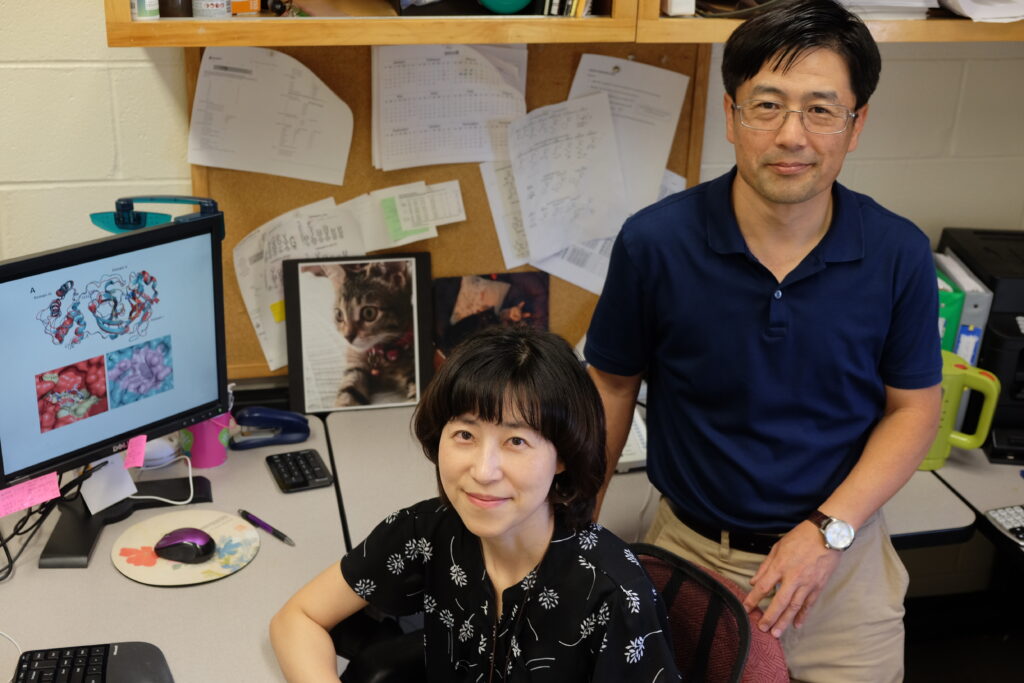
Recently a team of virologists in the College of Veterinary Medicine published a study showing a possible therapeutic treatment for COVID-19. The study, “3C-like protease inhibitors block coronavirus replication in vitro and improve survival in MERS-CoV-infected mice,” appears in the Aug. 3 issue of Science Translational Medicine, a prestigious medical journal.
The team includes Yunjeong Kim and Kyeong-Ok “KC” Chang along with collaborators at Wichita State, the University of Iowa and the University of Kansas.
According to an article in K-State Today Tuesday, the study reveals how small molecule protease inhibitors show potency against human coronaviruses. These coronavirus 3C-like proteases, known as 3CLpro, are strong therapeutic targets because they play vital roles in coronavirus replication.
It also demonstrates that this series of optimized coronavirus 3CLpro inhibitors blocked replication of the human coronaviruses MERS-CoV and SARS-CoV-2 in cultured cells and in a mouse model for MERS. These findings suggest that this series of compounds should be investigated further as a potential therapeutic for human coronavirus infection.
Chang and Kim have been using National Institutes of Health grants to develop antiviral drugs to treat MERS and human norovirus infections. Their work extends to other human viruses such as rhinoviruses and SARS-CoV-2.
Information in this story is from an Aug. 3 article published in K-State Today.


